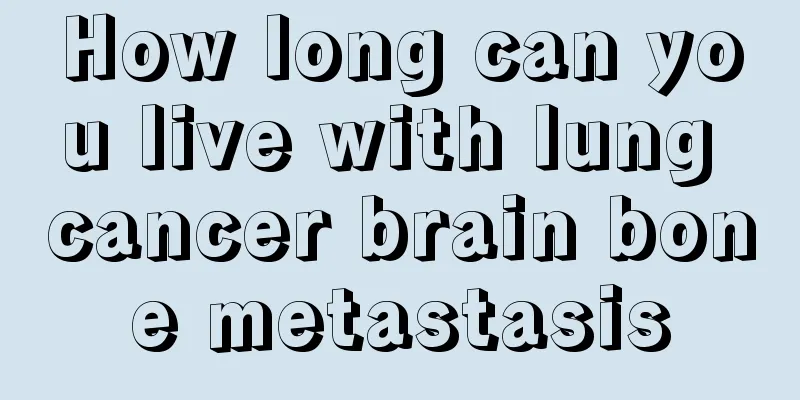If a woman's hair falls out here, it can be fatal

|
Introduction: The human body needs iron to help produce red blood cells to carry oxygen throughout the body. Iron deficiency can lead to anemia, which results in a decrease in red blood cells and a decrease in the amount of blood oxygen reaching the scalp.
1. Anemia Experts say that iron supplementation can help improve symptoms of anemia. Lack of vitamin C, intake of caffeine or alcoholic beverages are not conducive to iron absorption. It is recommended to drink juice and eat iron-rich foods to restore hair growth. 2. Eating disorders Reducing food intake will lead to a decrease in blood flow to the scalp, which in turn affects the normal growth of hair. In severe cases, it can cause hair to lose its luster or even fall out. Experts say hair loss is rarely permanent, but eating a balanced diet and consuming plenty of protein is key to preventing it. Hair is made of protein, and when hair follicle protein is at its lowest, it is particularly important to consume more protein (especially breakfast). In addition, the diet should be rich in vitamins (especially B vitamins), zinc and important fatty acids. 3. Polycystic ovary syndrome
Polycystic ovary syndrome in women is caused by excessive levels of male hormones, and patients will experience symptoms of thinning hair on the forehead and top of the head. This situation mostly occurs in patients with a family history of hair loss. Experts say that patients lose hair on their heads, but hair on their faces and bodies grows wildly. Medications that lower male hormones and scalp massages to promote blood flow can help patients regrow their hair. 4. Thyroid disease The first symptom of thyroid dysfunction is hair loss. Too much or too little thyroid hormone can affect metabolism and normal hair growth. Since all hair follicles are affected, hair loss is not a localized phenomenon. Experts say medications and other treatments can help alleviate the condition. In order to restore your hair to its original state, it is best to consume more protein and do a head massage every morning. 5. Stress syndrome Stress can cause premature graying of hair. When under stress, the human body releases a variety of hormones that will affect the absorption of B vitamins and affect hair pigmentation. Stress syndrome can lead to alopecia - the body's immune system mistakenly attacks scalp cells, causing large clumps of hair to fall out. Mental relaxation and taking vitamin B complex can improve the problem of premature gray hair. |
<<: 7 bad habits that can easily lead to endocrine disorders. See how many of them you have.
>>: What to do if your skin is dry
Recommend
What to do if your neck is swollen due to thyroid cancer
The swelling of the neck caused by thyroid cancer...
Five tongue expressions indicate where you are getting angry
Traditional Chinese medicine emphasizes "obs...
Pain in the front calf muscles when running
Muscle pain may be caused by incorrect running me...
What are the prevention methods for pancreatic cancer
What are the prevention methods for pancreatic ca...
How long can you live after lung cancer surgery?
For lung cancer patients who undergo surgery, whe...
Which acupoints should be massaged for lymphoma
Unblocking the hand-yangming large intestine meri...
How long can an old man live with pancreatic cancer
Oncologists say that pancreatic cancer has always...
Is moxibustion stick better or moxibustion patch better
With the improvement of life, more and more peopl...
What are the symptoms of laryngeal cancer
What are the symptoms of throat cancer? In the ea...
What are the examination items for lung cancer
What are the examination items for lung cancer? T...
Thin people have many hidden diseases
Many elderly people believe that “being thin in o...
What is the difference between subtotal thyroidectomy and total thyroidectomy?
Subtotal thyroidectomy and total thyroidectomy ge...
What should I do if the toilet is clogged? Just use these few tricks!
Flush toilets are very common in daily life becau...
What are the acupoint massage methods for stiff neck
I believe that many people, or almost everyone, h...
What can you eat in summer to nourish your kidneys?
Traditional Chinese medicine believes that the ki...









